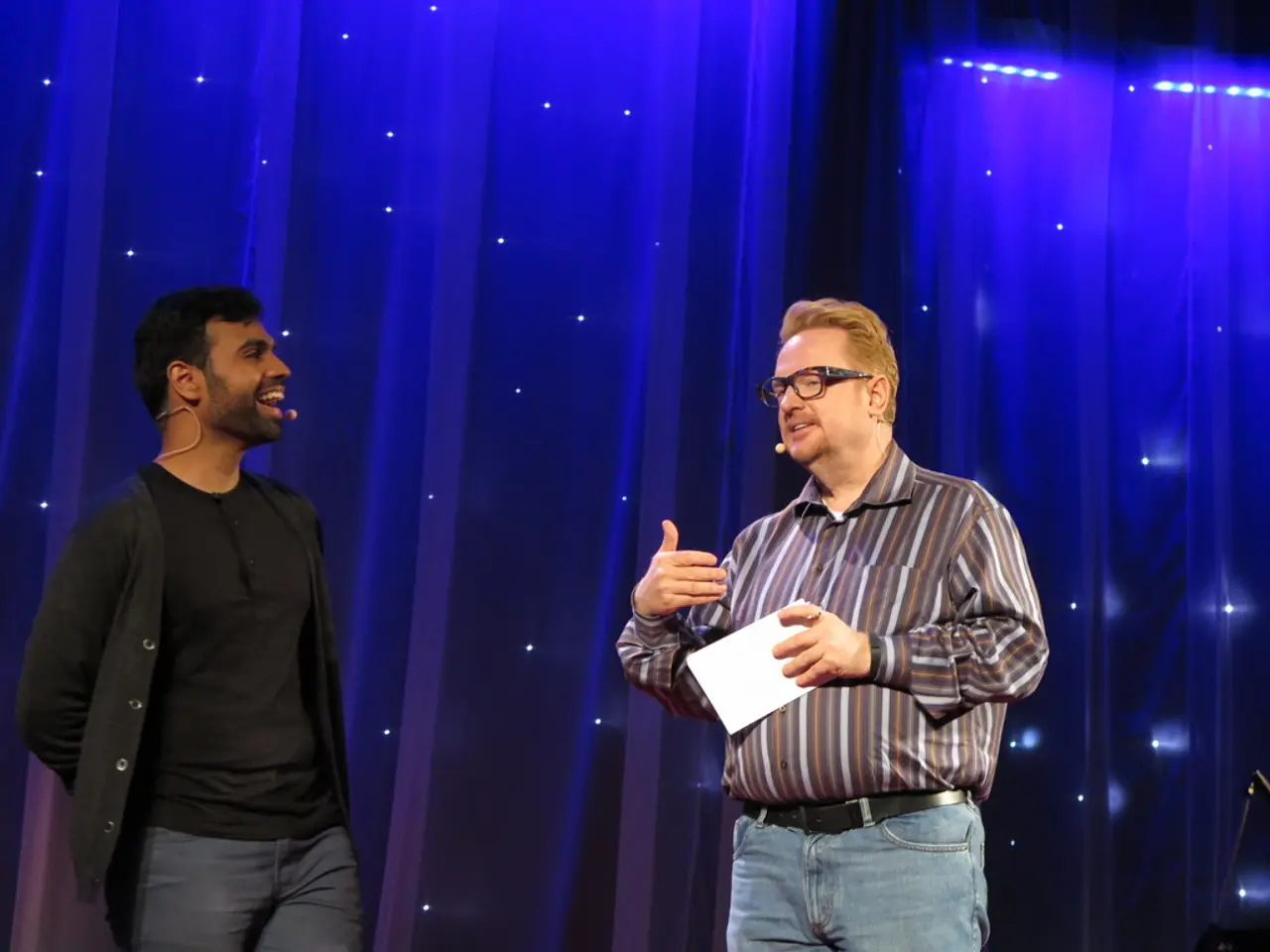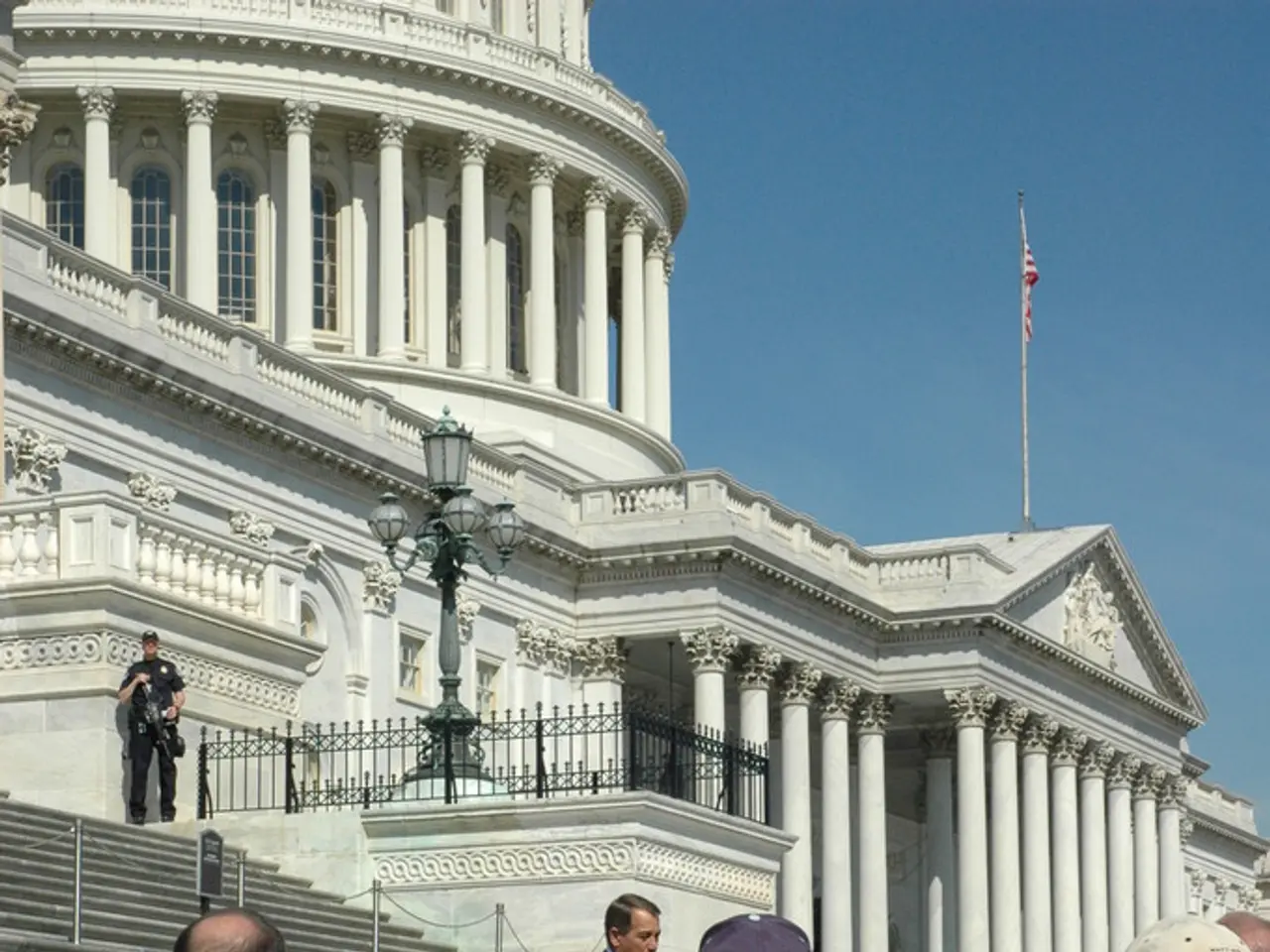Have marketers lost their sense of humor?
In the dynamic world of marketing, humor is no longer a secondary consideration, but a strategic tool that can significantly enhance brand engagement and memorability. Lydia Mulkeen, MD at Wake the Bear, emphasizes the importance of choosing emotional triggers carefully, with humor being one such choice, albeit a subjective one.
Emily Rich, a lead strategist, underscores this point by highlighting Flo's Period Drama campaign, which demonstrates that humor needn't be limited to big hitters or 'sexy' categories. The key, she suggests, is to use humor strategically, aligning it with brand voice and values to boost emotional connection, brand recall, and engagement.
Current best practices for humor in marketing campaigns emphasize strategic, brand-aligned humor that enhances engagement and memorability while carefully avoiding offensiveness and maintaining consistency. Here are some key strategies:
- Use humor deliberately as a strategic tool: Humor can increase memorability by 37% and social shares by up to 400% when done well.
- Align humor with your brand voice and values: The humor must enhance brand personality without overshadowing core messaging.
- Keep humor simple and clear: Overly complex or obscure jokes risk losing the audience or seeming out of touch.
- Focus on timeliness and relevance: Leveraging current trends or viral moments that resonate with your target audience maximizes reach and relatability.
- Marry humor with purpose: Successful campaigns blend amusement with positive brand purpose, steering clear of edgy or polarizing humor that can alienate audiences.
- Test humor carefully before launch: Proper vetting can reduce the risk of offending or alienating key customer segments.
- Consider audience and cultural sensitivities rigorously: Avoid humor based on stereotypes, divisive topics, or anything that might be perceived as offensive or inappropriate.
- Leverage humor in formats suited to your industry and platform: Even serious B2B brands can use relevant, relatable humor to build rapport and trust without sacrificing professionalism.
- Monitor ongoing feedback and adapt: Humor tactics should be dynamic, responding to changing audience preferences or social contexts.
By combining these practices, marketers can harness humor’s power to differentiate their brand, deepen customer relationships, and increase campaign effectiveness — all while mitigating the risks of offending or undermining brand identity.
Social marketers, such as Eve Lily Young at SocialChain, are leading brands to be funnier than ever, with platforms like TikTok providing prime examples. However, the use of humor in advertising requires bravery and boldness, as Vicky Janaway, Chief Client Officer at The Gate London, suggests, and the current pandemic and cost of living crisis may be hindering its use.
Emily Rich believes we are emerging from the 'pious' marketing era, and demand for funny material is higher among Brits, especially those most affected by high prices. Marc Allenby, Co-Founder and CCO at Hijinks, praises the comedy ads he's seen in the US, particularly those from the Super Bowl, and emphasizes the importance of comedy amplifying a brand's tone and playing into the vibe of its audience.
Glenn Fisher suggests striving for more unexpected and less predictable humor would help advertising connect better and be more memorable. Josh Akapo, Co-Founder and Head of Strategy at archtype, feels marketing has been trying too hard in recent years and suggests going with one's gut to bring out the natural humor in creativity.
David Wethey laments the lack of humor in modern marketing, attributing it to social engineering and political correctness, and argues that a sense of humor has never been more needed in the current world. Eve Lily Young advises brands to define their unique brand persona's sense of humor instead of adopting a generic 'funny brand voice'.
In conclusion, the strategic use of humor in marketing campaigns can significantly enhance brand engagement and memorability while avoiding offensiveness and maintaining consistency. By understanding their audience, aligning humor with brand voice and values, and testing humor carefully before launch, marketers can harness humor’s power to differentiate their brand, deepen customer relationships, and increase campaign effectiveness.
- Strategic humor in marketing, as emphasized by Emily Rich, can boost emotional connection, brand recall, and engagement by up to 400% in social shares, according to best practices.
- Marketers, such as Glenn Fisher, argue that unexpected and less predictable humor can help advertising connect better and be more memorable, challenging traditional marketing norms.
- Brands can differentiate themselves using humor, as depicted by Social Marketers like Eve Lily Young, with platforms like TikTok showcasing the potential of a funnier advertising landscape.
- The current world, as stated by David Wethey, is in dire need of a more humorous approach in marketing, with concerns over social engineering, political correctness, and a stagnant marketing approach being labeled as hindrances to humor's potential.








